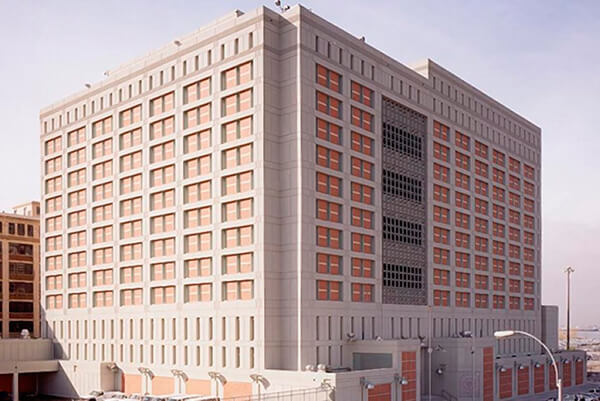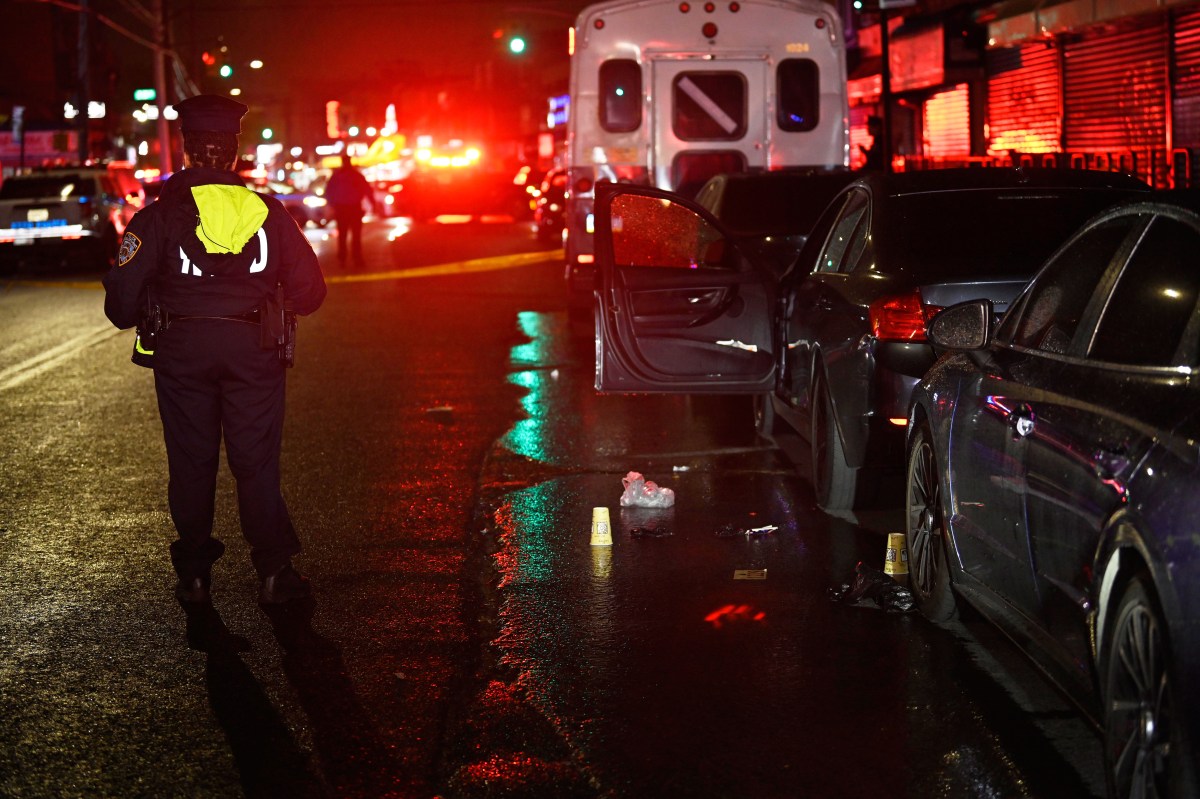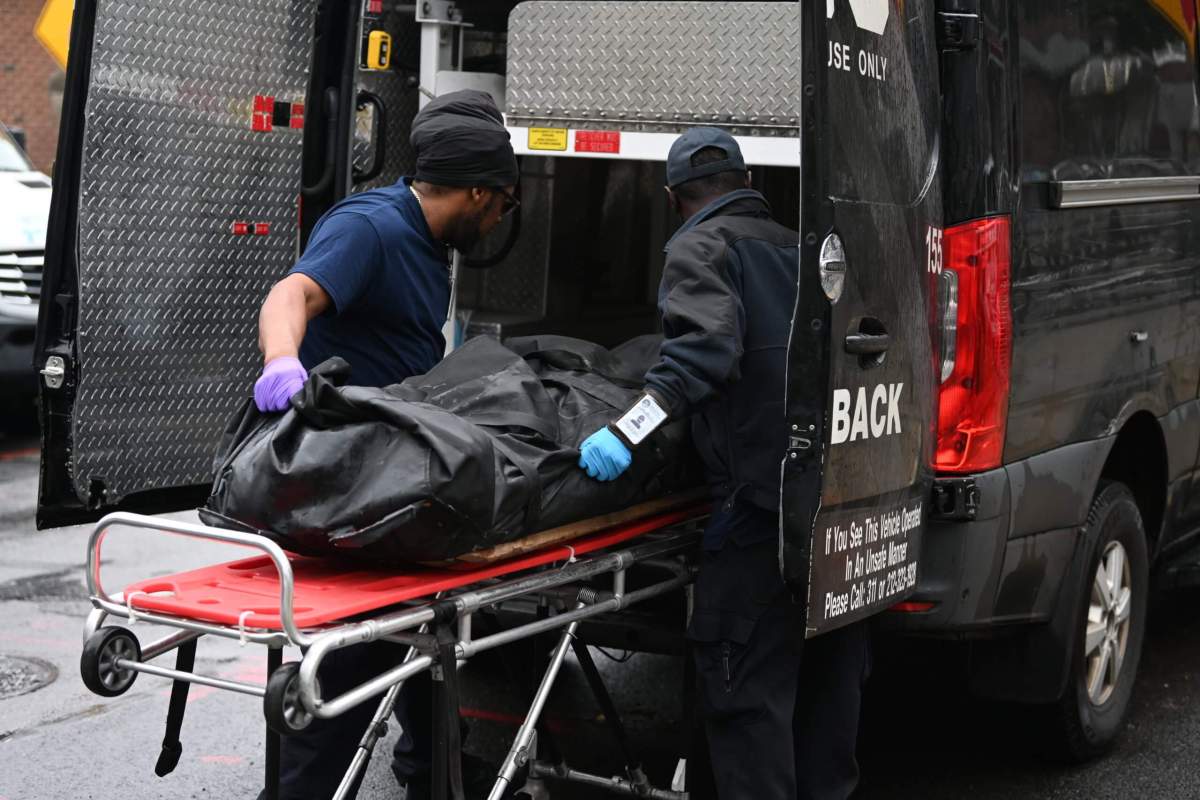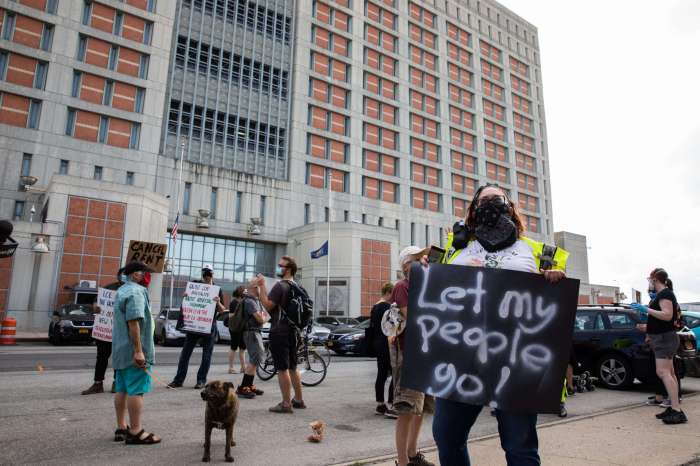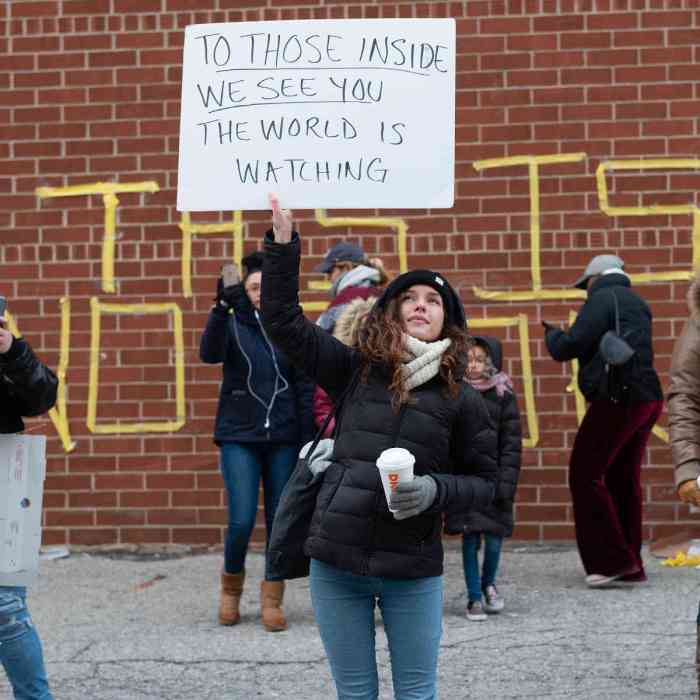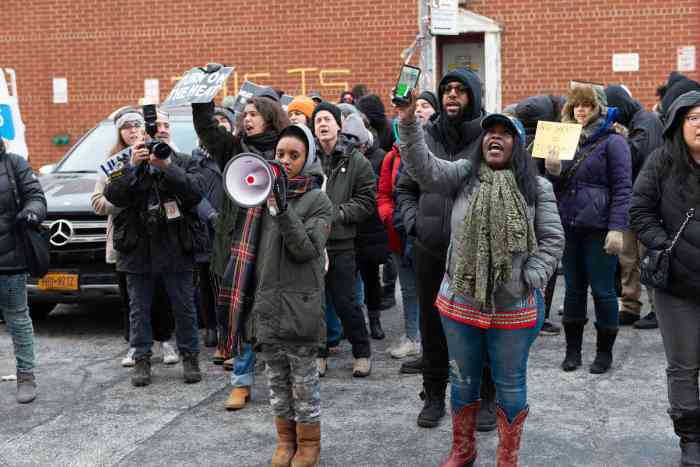Prison officials at the scandal-plagued Metropolitan Detention Center in Sunset Park have failed to properly handle the spread of coronavirus, according to past and present detainees who blasted the prison’s conditions as unsafe and inhumane.
“My husband is not crying out to be released, he is crying out because of the conditions that are going on in there,” said the wife of a current inmate, who requested anonymity to speak freely about her husband’s experience.
The prison made headlines earlier this month when 35-year-old inmate Jamel Floyd died after corrections officers pepper-sprayed him in the face — sparking a string of protests outside of the facility, coinciding with other demonstrations against police brutality.
Last December, the detention center also came under fire when a power outage forced 1,600 inmates to bear below-freezing temperatures for an entire week, leading to a probe by the federal Department of Justice.
Now, sources claim that inmates have been subjected to “incredible” conditions inside the facility — where staff force detainees into near-constant confinement to their cells, and have provided a troubling lack of medical response to the virus.
“I was locked in the cell basically 24 hours a day,” said former inmate Gregory Cooper, who was granted compassionate release on April 30. “I was allowed to come out for 30 minutes a day, three times a week to shower, use the phone and talk with my attorneys — all within a half-hour.”
In the short time inmates are allowed outside of their cells, Cooper said it’s impossible to keep a social distance — leading to the inevitable spread of the virus. Prior to his release, at least a dozen of his 80 fellow inmates in his unit were showing signs of the coronavirus.
“There is no social distancing,” Cooper said. “When they let everybody out for the 30 minutes, everybody is congregating, everybody is talking.”
Since imposing confinement, prison officials have canceled the routine maintenance of cells altogether, forcing inmates to live in unsanitary conditions, said the current inmate’s wife.
“He expresses how there is an aroma coming from the toilets,” she said. “There are no lids, and they are not being cleaned.”
The woman also said that the emergency button in her husband’s cell is not working properly — making her fear for his safety, as he is asthmatic.
“I feel like that is something that around this time should at least work,” she said, adding that the poor ventilation in her husband’s cell is leading him to have difficulty breathing.
Six inmates at the detention center took the matter to court with a lawsuit on March 27, requesting oversight in the facility’s pandemic response and the release of inmates with existing medical conditions — however, a judge denied their petition on June 10, and commended the correctional officers’ “aggressive” response to the virus.
“I conclude that petitioners have not shown a clear likelihood that MDC officials have acted with deliberate indifference to substantial risks in responding to COVID-19,” wrote federal Judge Rachel P. Kovner. “Rather than being indifferent to the virus, MDC officials have recognized COVID-19 as a serious threat and responded aggressively.”
As part of the lawsuit, independent examiner Dr. Homer Venters, an epidemiologist and former chief medical officer for city jails, visited the center on April 23 and found insufficient amounts of masks and gloves, along with a failure to implement proper infection control measures, according to court documents.
“The CDC has identified basic guidelines for infection control and overall COVID19 response in detention settings, many of which the MDC appears to have ignored,” Venters wrote in his April 30 report. “I would have expected — at minimum — that the MDC had sufficient levels of PPE, cleaning solution and equipment, an adequate quantity of tests available and that common, hightouch surfaces such as phones and computers would be cleaned between uses.”
In his report, Venters said detainee’s sick calls were often ignored, and when they were answered, officials typically only conducted a temperature check.
“After multiple requests, the only response was for a health staffer to come to their cell and take their temperature,” Venters wrote. “However, no thorough symptoms were elicited and no other physical examinations were conducted. According to the detainees, this was the case even when they reported having shortness of breath.”
Cooper echoed the lack of a medical response inside the detention center, claiming inmates will ultimately die from the virus before correctional officials would consider their release.
“You could be dying, they won’t let you go,” he said. “They are not letting people go.”
Another inmate was reported dead at the prison last week, three weeks after he quietly died of unknown causes on May 19, according to the New York Daily News.


